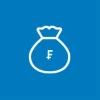In Switzerland, assets can be seized towards the repayment of unpaid debts. However, there are strict rules governing which assets are seizable and which are not.
Which assets can be seized to repay debts in Switzerland?
An attachment can be placed on your salary by which your employer is required to withhold part of your salary and transfer it to the debt collection office. In exceptional cases, the debt collection office may agree to not inform your employer about your debt. In this case, the onus rests on you to transfer the required portion of your salary as per the attachment order. This also applies to income earned outside of Switzerland.
- Your occupational pension
If you receive a pension from an occupational pension fund (pillar 2), an attachment may be placed on your pension. Your pension fund is required to transfer the attached portion of your pension to the debt collection office.
- Withdrawn retirement savings
Money withdrawn from occupational pension funds or vested benefits accounts as a lump sum can be seized upon withdrawal. The same applies to withdrawals from pillar 3a accounts and other pillar 3a solutions.
- Your unemployment benefits
If you receive benefits from unemployment insurance, these may be attached in order to repay debt.
If you own real estate, it can be seized and sold in order to repay your debts. Your capital assets (savings, for example) can also be seized. Cars, jewelry, furniture and other personal property will normally only be seized if they have potential to turn a profit after deducting the costs of seizing and selling them.
Alimony paid to you by a former partner for your own financial needs counts towards your attachable income. Child support payments you receive, on the other hand, cannot be seized.
- Accident insurance pensions
Loss-of-income benefits and disability pensions from the accident insurance you get through your Swiss employer (UVG) fall under the portion of your income that can be attached.
The estimated benefits derived from a usufructuary arrangement, such as an agreement that gives you the right to use a house or apartment, count towards your seizable income. Yields you earn thanks to a usufructuary agreement can also be seized.
- Settlements and Insurance benefits
All other life annuities, settlement agreements, pensions, and insurance benefits that replace lost income or a right to financial support can generally be seized. But there are certain pensions that are except from this rule (these are explained below).
Which assets cannot be seized to repay debts?
The debt collection office calculates your poverty line based on your unavoidable expenses. The portion of your income which falls below this threshold cannot be seized. The poverty line is the portion of your income from salaries, pensions, or unemployment benefits that is considered necessary for your basic living expenses.
You can find detailed information about the poverty line in Switzerland here.
- Your Swiss government pension
Your Old Age and Survivors Insurance (OASI) benefits and pensions cannot be seized to repay debts.
If you receive child benefits through your employer or from the canton, these benefits cannot be seized to repay debts.
Pensions from Swiss social disability insurance (DI) cannot be seized. Other disability insurance benefits and pensions paid out to you or your family members also cannot be seized.
Widow’s pensions and orphan’s pensions which you receive cannot be seized to repay debts.
- Life insurance cash value
The cash value of permanent life insurance cannot be seized if your spouse or children are named as irrevocable beneficiaries (this is always the case with pillar 3a policies).
The cash value of pillar 3b and foreign permanent life insurance can be seized by creditors if the beneficiary is not your spouse or child, or if the beneficiary is revocable.
- Pension fund benefits which you have not withdrawn
Benefits held by an occupational pension fund or a vested benefits foundation on your behalf cannot be seized until they are withdrawn. Cashed-out benefits and pensions, on the other hand, can be seized.
If you have withdrawn your occupational pension fund benefits as a lump sum, the debt collection office should divide this into a hypothetical monthly pension. It can only attach the portion which, when combined with your other income, exceeds the minimum subsistence.
- Pillar 3a retirement assets which you have not withdrawn
Assets which are held by a retirement foundation on your behalf (in a pillar 3a account or pillar 3a retirement fund, for example) cannot be seized while within the pillar 3a. Assets can be seized as soon as they are withdrawn from the pillar 3a.
If you receive welfare subsidies from your municipal social services, these cannot be seized.
Equipment and other items which are necessary in order for you to earn income cannot be seized to repay debts. If your car is deemed absolutely essential to your earning a living, then it cannot be seized.
- Essential personal property
Items which are considered basic necessities – like beds and other basic furniture, clothing, and appliances – cannot be seized. If you own valuable personal property, this may be seized in exchange for sufficient compensation to purchase budget items. For example, expensive furniture may be seized in exchange for sufficient money to purchase simpler necessary furniture.
More on this topic:
How to deal with debt collection in Switzerland
Guide to personal bankruptcy in Switzerland
Swiss personal loan comparison
Tips for getting out of debt fast

 Deal of the Day
Deal of the Day 







